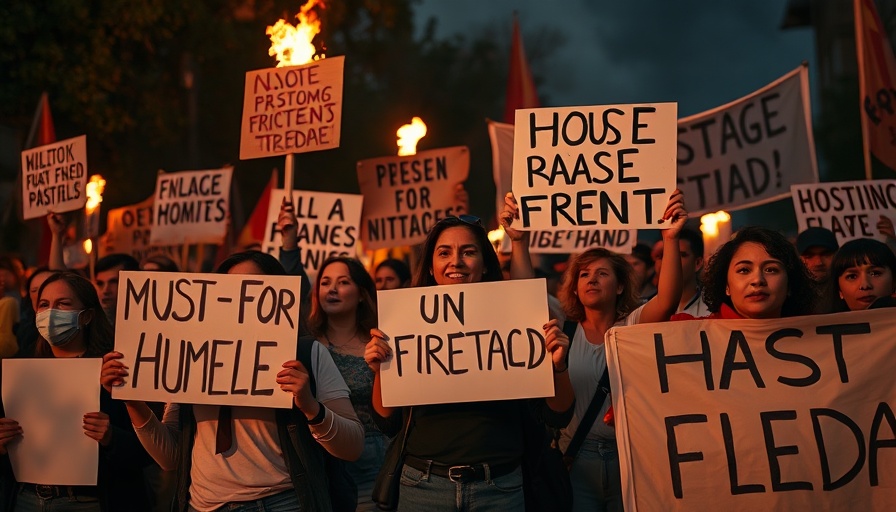
The Tragic Death That Ignited Outrage in Bangladesh
The heart-wrenching death of an eight-year-old rape victim has ignited unprecedented protests across Bangladesh, underscoring a deep-rooted public demand for justice and accountability. This young girl, who suffered intense trauma and ultimately succumbed to her injuries, was a symbol of the plight faced by many women and children in a country grappling with rising violence. Her death on March 8, shortly after being admitted to the Combined Military Hospital in Dhaka, not only highlighted the brutal reality of sexual violence but also galvanized a populace that is increasingly intolerant of systemic failures in addressing such crimes.
Public Outcry: Protests Rocking the Nation
In the aftermath of her death, thousands took to the streets demanding swift justice for the girl and all victims of sexual violence. Demonstrators gathered in Magura, charging towards the alleged perpetrator's house, which they subsequently set ablaze. Symbolic protests occurred nationwide, including at Dhaka University, where students staged a mock funeral to express their grief and outrage. Activists like Zarin Rafiza articulated the urgency of the moment: “We want justice, and we want it now!” The collective anger centers around not just a single incident but an alarming trend of escalating violence against women.
Calls for Legal and Societal Reform
The protests emphasize a desperate need for legal reform. Activists argue that the current definitions of rape within the Bangladeshi legal framework are ambiguous, leading to delayed justice and inadequate protections. Many participants in the protests have advocated for a clearer legal framework surrounding sexual offenses, pushing for immediate amendments that can ensure justice is not only served but swiftly executed.
“Our fight extends far beyond this one case,” Rafiza noted, representing a broader movement calling for societal transformation to dismantle the patriarchy that perpetuates violence against women. As the interim government reflects on its past failures, the pressure mounts to deliver tangible changes to support victims and prevent future violence.
Historical Context: The Political Climate
The political backdrop of Bangladesh has been tumultuous, especially following the ousting of former Prime Minister Sheikh Hasina after a bloody student-led protest last year. Many activists and citizens feel that the interim government has not delivered on promises to enhance security and reduce crime following Hasina's authoritarian rule, which was marred by violence and repression. Zarin Rafiza and numerous other young activists represent a generation disillusioned with the status quo, and their voices are ringing out loud and clear amid the current crisis.
Future Considerations: The Path Forward
The anticipated trial of those involved in the girl's rape and murder, expected to happen shortly, is a pivotal moment for the country. Activists await not just justice for this case but a systemic overhaul that applies robust legal frameworks to protect the vulnerable, especially women and children. In the wake of the rising movement, there is hope that new legislation could arise from the ashes of this tragedy, sparking a commitment to change.
For those witnessing this unfolding situation, the case of the young girl serves as a clarion call for action against violence targeting the most defenseless. The growing demand for reform is not just a reaction to a singular event but rather a defining moment for Bangladesh's future, where justice for one can pave the way for justice for many.
 Add Row
Add Row  Add Element
Add Element 



Write A Comment